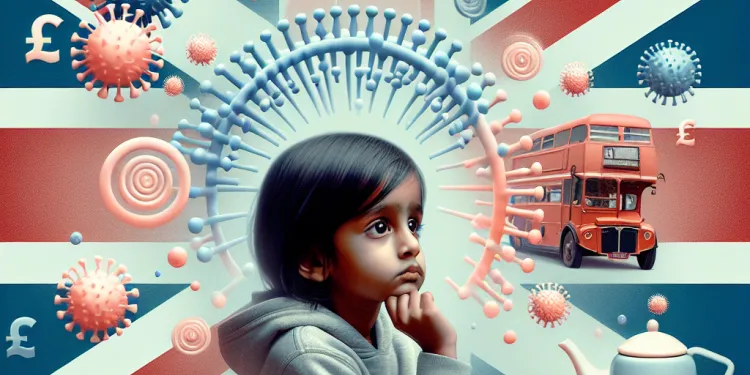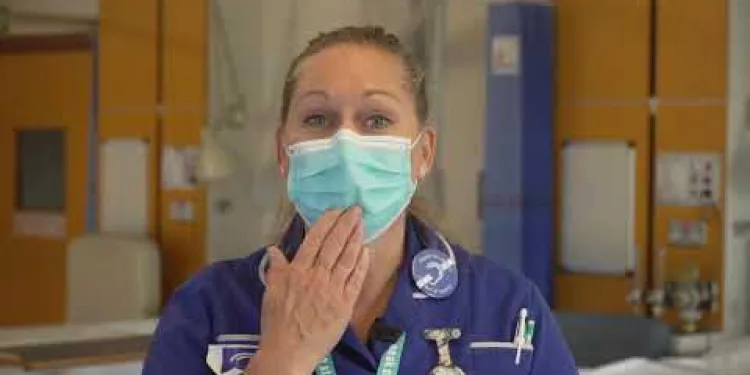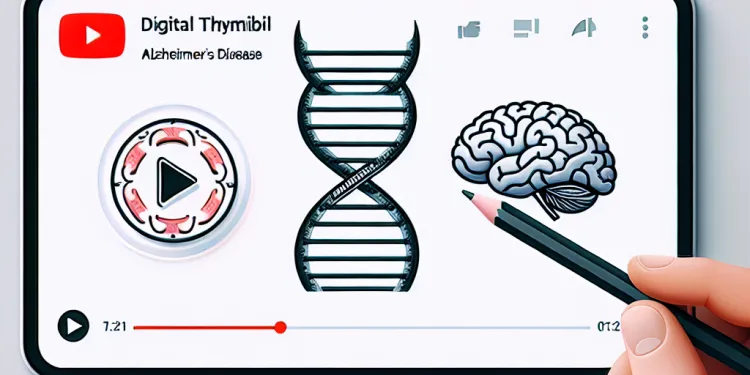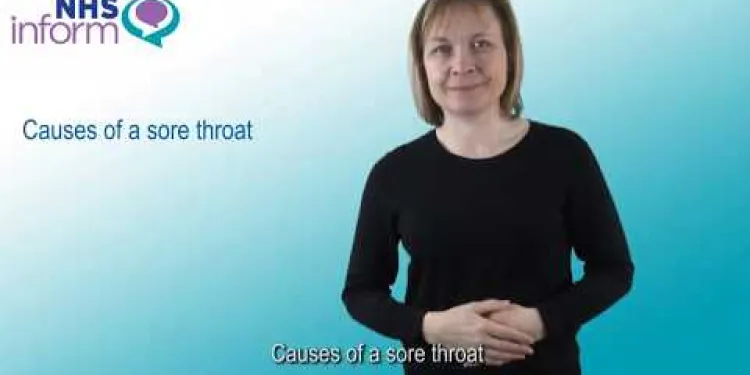
Find A Professional
More Items From Ergsy search
-
New Covid Variant Strains
Relevance: 100%
-
What is a COVID-19 variant?
Relevance: 96%
-

Are new COVID-19 variants more dangerous?
Relevance: 86%
-

Can new variants cause reinfection?
Relevance: 84%
-
Do new variants affect COVID-19 testing?
Relevance: 82%
-
How often do new COVID-19 variants emerge?
Relevance: 80%
-

Are children more affected by new variants of COVID?
Relevance: 80%
-
How do COVID-19 variants arise?
Relevance: 78%
-

Are new variants more transmissible?
Relevance: 76%
-
How are COVID-19 variants detected?
Relevance: 71%
-

How can I protect myself from new COVID-19 variants?
Relevance: 70%
-

Should I be worried about new variants?
Relevance: 68%
-

Do vaccines work against new COVID-19 variants?
Relevance: 66%
-

Why do some variants spread more easily?
Relevance: 65%
-
Does the flu vaccine protect against COVID-19?
Relevance: 61%
-

Long Covid
Relevance: 55%
-

Do all mutations in the virus lead to new variants?
Relevance: 52%
-

What are the symptoms of long covid?
Relevance: 44%
-

Long COVID - Managing Breathlessness
Relevance: 30%
-
New Research Sheds Light on Long Covid Effects
Relevance: 28%
-
What are the COVID-19 travel restrictions for traveling to Spain?
Relevance: 28%
-

Breathlessness after COVID-19 - helpful techniques
Relevance: 23%
-

How to retrain your breathing | Part 2 | Asthma, long covid or breathlessness
Relevance: 19%
-

How to help deaf and hearing impaired patients and staff through Covid
Relevance: 12%
-

Does genetic makeup affect how coffee impacts blood pressure?
Relevance: 11%
-

Do I need any vaccine injections for EU countries?
Relevance: 9%
-
Can current treatments handle new COVID-19 variants?
Relevance: 6%
-
Are the symptoms different with new COVID-19 variants?
Relevance: 6%
-
What is being done globally to track COVID-19 variants?
Relevance: 6%
-
What are some well-known COVID-19 variants?
Relevance: 6%
-

What role does genetics play in Alzheimer's disease?
Relevance: 5%
-

NHS 111 An Inclusive Service
Relevance: 4%
-

Latest Advice on Managing Respiratory Illnesses During Flu Season
Relevance: 4%
-

An introduction to frontotemporal dementia (FTD) (part 1/3)
Relevance: 3%
-

Causes of a sore throat
Relevance: 3%
-

Rise in Food Bank Usage Amid Economic Challenges
Relevance: 3%
-

Can pregnant women get the flu vaccine?
Relevance: 3%
-

What is herd immunity?
Relevance: 3%
-

What role do booster shots play with new variants?
Relevance: 3%
-

Why are council burial fees going up nearly 50% in the UK?
Relevance: 3%
Introduction to New Covid Variant Strains
Since the onset of the Covid-19 pandemic, the virus responsible, SARS-CoV-2, has undergone numerous mutations, leading to the emergence of various strains or variants. These new Covid variant strains have significant implications for public health and the ongoing efforts to control the pandemic. In the UK, understanding and addressing these variants is crucial for effective management of the virus and to mitigate potential challenges they bring.
What Are Covid Variant Strains?
Covid variant strains arise from mutations in the virus's genetic code. While most mutations are harmless, some may result in characteristics that increase transmissibility, severity, or resistance to the immune response triggered by vaccines or previous infections. These variants are monitored by health organizations worldwide to identify any that may pose increased risks to public health.
Significant Variants of Concern
Several key variants of SARS-CoV-2 have been identified and labelled as Variants of Concern (VOCs) by organizations such as the World Health Organization (WHO). Notable variants include the Alpha, Beta, Gamma, Delta, and Omicron strains. Each of these has exhibited unique mutations affecting the virus's behavior, with some showing enhanced transmissibility or potential resistance to antibodies.
Impact on the UK
The emergence of new Covid variant strains has had a significant impact on the UK. The Alpha variant, first identified in the UK, led to a surge in cases due to its higher transmissibility. The Delta variant, initially detected in India, became the dominant strain in the UK, leading to a reconsideration of public health strategies and vaccine rollouts. More recently, the Omicron variant has raised concerns due to its numerous mutations, although its impact on disease severity is still being studied.
Vaccination and Variant Strains
Vaccination remains a cornerstone of the UK’s strategy to combat Covid-19, even with the emergence of new variants. Current vaccines have shown varying degrees of effectiveness against different strains, but they significantly reduce the risk of severe disease and hospitalization. Booster doses have been deployed to enhance immunity against variants like Delta and Omicron, adapting to the evolving threat landscape.
Ongoing Research and Monitoring
In response to the challenges posed by new variants, the UK continues to invest in genomic sequencing and research efforts to track and understand these changes. The UK has one of the world's most comprehensive genomic monitoring systems, which is crucial for early detection of new variants and informing public health responses.
Conclusion
New Covid variant strains underscore the dynamic nature of the pandemic and highlight the necessity for continuous vigilance and adaptation. The UK's multifaceted approach, including robust vaccination campaigns, genomic surveillance, and public health measures, aims to mitigate the effects of these variants and protect the population. Staying informed and adhering to recommended guidelines remain essential components in navigating the ongoing pandemic challenges.
Introduction to New Covid Variant Strains
Since Covid-19 started, the virus has changed many times. These changes are called variants. Variants can affect how we deal with Covid-19. In the UK, knowing about these variants helps keep people safe.
What Are Covid Variant Strains?
Covid variant strains happen when the virus changes. Most changes do not matter. But some changes can make the virus spread more, make you sicker, or make vaccines work less well. Health experts watch these changes closely.
Significant Variants of Concern
Some variants are watched more because they can be more dangerous. These are called Variants of Concern. These include Alpha, Beta, Gamma, Delta, and Omicron. Each one is different and may spread more easily.
Impact on the UK
New variants have changed how Covid-19 spreads in the UK. The Alpha variant spread more quickly. Then the Delta variant became common in the UK, so health plans had to change. Now, experts are looking at the Omicron variant.
Vaccination and Variant Strains
Vaccines are very important to fight Covid-19. They help stop people from getting very sick. New variants might affect how well vaccines work, so people may get booster shots to help protect against variants like Delta and Omicron.
Ongoing Research and Monitoring
The UK studies virus changes to understand variants better. This helps find new variants quickly and decide the best actions to take. The UK is one of the best at checking these changes.
Conclusion
New Covid variants show that the virus can keep changing. The UK uses vaccines, studies, and health rules to keep people safe. It is important to follow health advice and stay informed to face the pandemic.
Frequently Asked Questions
What is a COVID-19 variant?
A COVID-19 variant is a strain of the virus that causes COVID-19, SARS-CoV-2, that has undergone mutations, leading to differences in its genetic makeup.
How do COVID-19 variants arise?
Variants arise when the virus replicates and mutations occur in its genetic material. Some mutations can lead to new variants with different characteristics.
Are new COVID-19 variants more dangerous?
Some variants may spread more easily, cause more severe disease, or evade immune responses. The impact of a new variant depends on its specific mutations.
How are COVID-19 variants detected?
Variants are detected through genomic sequencing, where the genetic material of the virus is analyzed to identify any changes or mutations.
Do vaccines work against new COVID-19 variants?
Most vaccines are effective against many variants, but their effectiveness may be reduced against some variants. Ongoing research assesses vaccine effectiveness against new strains.
Should I be worried about new variants?
While some variants can impact transmission and severity, public health measures like vaccination, masking, and social distancing can still help control their spread.
Can new variants cause reinfection?
Some variants may have mutations that allow them to partly evade immunity from past infections or vaccinations, potentially leading to reinfections.
What are some well-known COVID-19 variants?
Well-known variants include Alpha, Beta, Gamma, Delta, and Omicron, each with specific mutations that affected their transmissibility and immune evasion.
Do new variants affect COVID-19 testing?
Most standard COVID-19 tests continue to detect new variants, though specific genetic tests may be adapted to account for new mutations.
How can I protect myself from new COVID-19 variants?
Get vaccinated, follow public health guidelines, wear masks, practice social distancing, and maintain good hand hygiene to protect against variants.
Are new variants more transmissible?
Some variants, like Delta, have mutations that make them more transmissible than the original virus strain, leading to faster spread in communities.
Why do some variants spread more easily?
Mutations in the spike protein or other parts of the virus can increase its ability to infect cells or improve its transmission from person to person.
How often do new COVID-19 variants emerge?
Viruses constantly mutate, but significant variants may emerge periodically, depending on factors like transmission rates and vaccine coverage.
Are the symptoms different with new COVID-19 variants?
Generally, symptoms are similar across variants, but some may cause slightly different symptom profiles or lead to more severe cases.
How does a variant become a variant of concern?
A variant becomes a variant of concern if it shows evidence of increased transmissibility, more severe disease, or reduced effectiveness of treatments or vaccines.
Can current treatments handle new COVID-19 variants?
Most treatments, like antivirals and monoclonal antibodies, remain effective, though some may need adjustments depending on the variant.
Do all mutations in the virus lead to new variants?
Not all mutations result in new variants; only those that confer a survival advantage to the virus may become more prevalent and lead to a new variant.
What role do booster shots play with new variants?
Booster shots can enhance immunity and help protect against emerging variants, especially if the variant decreases the vaccine's initial effectiveness.
Are children more affected by new variants?
Currently, there is no consistent evidence that new variants specifically target children differently, though overall transmissibility may impact all age groups.
What is being done globally to track COVID-19 variants?
Global initiatives, led by organizations like WHO, promote genomic surveillance, data sharing, and collaborative research to monitor and study COVID-19 variants.
What is a COVID-19 variant?
A COVID-19 variant is a new form of the virus that causes COVID-19. Viruses change over time, which is why new variants can appear. These changes can make the virus act in different ways. Some variants may spread more easily or make people sicker.
If you find it hard to read this, you can:
- Ask someone to read it to you.
- Use a ruler or your finger to follow the words.
- Look at one sentence at a time. Take breaks if you need to.
- Use online tools that can read the text for you.
A COVID-19 variant is a type of the virus that makes people sick with COVID-19. The virus is called SARS-CoV-2. Sometimes, the virus changes a little bit, and these changes are called mutations. When the virus changes, it becomes a variant.
To help understand better or read it more easily, you can:
- Use a ruler or your finger to follow along the text.
- Take breaks if you feel tired.
- Read out loud slowly.
- Ask someone to help if you have questions.
How do new COVID-19 types start?
Variants happen when a virus makes copies of itself and changes a bit. These changes are called mutations. Some changes can make new versions of the virus that are a bit different.
Are New COVID-19 Variants More Dangerous?
COVID-19 is a sickness caused by a virus. Sometimes, the virus changes. These changes are called variants.
Some new variants might spread easier or make people sicker. But not all variants are more dangerous.
Doctors and scientists watch new variants closely. They try to find out if these variants are a problem.
If you have questions, talk to a doctor or someone you trust.
Tools like picture cards or videos can help you understand better.
Some types of the virus might spread faster, make people sicker, or hide from our body's defenses. What happens with a new type depends on how it changes.
How do we find different kinds of COVID-19?
Scientists find different virus types using a method called genomic sequencing. This means they look at the virus's genes to see if there are any changes or mutations.
Do vaccines help with new kinds of COVID-19?
Vaccines can help protect you from getting very sick.
Even if the virus changes, vaccines still work.
Vaccines make your immune system strong.
Your body can fight the virus better with a vaccine.
If you have questions, talk to a doctor or nurse.
You can use pictures or simple videos to help understand.
Ask someone you trust to explain more if you need help.
Most vaccines work well and help protect against different versions of a virus. But sometimes, they might not work as well against new versions. Scientists keep studying to see how well vaccines work on new changes in the virus.
Should I worry about new types of the virus?
No, you should not worry too much. Scientists are watching the virus closely. They want to make sure everyone stays safe.
Here’s what you can do to stay safe:
- Wash your hands often with soap and water.
- Wear a mask if told to by doctors or teachers.
- If you feel sick, tell an adult and stay home.
Ask a grown-up for help if you have questions.
Some types of the virus can spread faster and make people sicker. But there are things we can do to help stop this.
Getting the vaccine, wearing masks, and keeping a safe distance from others can help keep us safe.
Can you get COVID again from new variants?
Some versions of the virus have changes that might help them hide from the body's defenses, even if someone has been sick before or had a vaccine. This means people might get sick again.
What are some well-known COVID-19 variants?
COVID-19 is a type of virus. A virus can change and have new forms. These new forms are called "variants." Here are some of the well-known ones:
- Alpha: This variant was first found in the UK.
- Beta: This variant was first found in South Africa.
- Gamma: This variant was first found in Brazil.
- Delta: This variant was first found in India.
- Omicron: This variant was found later and spread very fast.
It's important to stay safe and listen to health advice. Use tools like pictures or videos to learn more easily.
There are different types of COVID-19. Some types you might know are called Alpha, Beta, Gamma, Delta, and Omicron. Each type has changes that can make it spread differently or hide from the body's defenses.
Do new kinds of COVID-19 change how tests work?
Most COVID-19 tests can still find new kinds of the virus. Some special tests may need changes to look for new changes in the virus.
How can I keep safe from new COVID-19 types?
Here are some ways to stay safe:
- Wear a mask: Put a mask on your face when around people.
- Wash hands: Clean your hands often with soap and water.
- Keep distance: Stay away from crowds and keep space from others.
- Get vaccinated: Vaccines can help stop the virus.
- Stay informed: Listen to news and health advice.
Tools that can help:
- Ask questions if you don't understand something.
- Use pictures or videos if they make it easier to learn.
- Get help from someone if you need it.
To stay safe from getting sick:
1. Get your vaccine.
2. Listen to health advice.
3. Wear a face mask.
4. Keep space between you and others.
5. Wash your hands often.
Do new types of the virus spread more easily?
New types of the virus can spread faster. Scientists check how quickly they move between people.
Some versions of the virus, like Delta, change in a way that makes them spread more easily than the first virus. This means they can pass from person to person faster in a community.
To understand better, try using picture stories or videos. They can help show how the virus spreads in a fun way.
Why do some types spread more easily?
Some types of germs spread faster because of different reasons. Here are a few reasons why:
- Change in Shape: Some germs change how they look, making them stick to people more easily.
- More Germs: Some types make more germs in the body, which leads to spreading faster.
- Better at Spreading: Some germs are better at moving between people.
To help understand things better, try using pictures or videos that explain germs and spreading. If you're not sure, you can ask an adult to help.
Changes in the spike protein or other parts of the virus can make it better at getting into cells or spreading from one person to another.
How often do new types of the COVID-19 virus show up?
Viruses change all the time. Sometimes, new kinds of viruses can appear. How this happens depends on how fast the virus spreads and how many people get vaccines.
Do new types of COVID-19 make you feel different?
Sometimes, new types of COVID-19 can make people feel different.
People might get new or different symptoms.
It is important to know what symptoms to look out for.
If you feel unwell, tell someone who can help, like a doctor.
Use pictures and simple lists to understand symptoms.
Ask someone to explain things if you find it hard to understand.
Most of the time, the signs of illness are the same for different types of the virus. But some types can make people feel a little different or feel much worse.
How does a variant become a variant of concern?
A variant is a different type of virus. Sometimes, a virus can change.
If the new virus can spread more easily or make people sicker, it becomes a "variant of concern."
This means doctors and scientists watch it very carefully.
Here are some tools to help you understand:
- Watch videos about viruses.
- Use pictures and drawings to learn.
- Ask a teacher or parent to explain.
A variant is a type of virus. Sometimes, a variant can change in a way that makes it a problem. This happens if it:
- Spreads more easily
- Makes people sicker
- Makes treatments or vaccines work less well
Using pictures or videos can help understand this better. You can also ask someone to read it with you.
Can the medicines we have now work on new types of COVID-19?
Most treatments still work well. These include antivirals and monoclonal antibodies. But, for some variants, doctors might need to make changes.
Do all changes in the virus make new types?
Not all changes in the virus make new types. Only changes that help the virus survive better can make a new type of virus.
Why are booster shots important for new variants?
Booster shots help keep you strong against new virus changes.
They give your body extra help to fight the virus.
Booster shots can make you safer if the virus changes.
Using pictures or videos can help you understand more.
Ask a friend or family member to explain if you have questions.
Booster shots can help your body stay strong against sickness. They are extra doses of a vaccine that keep you safe, especially if new and different germs make the vaccine work less well.
Do new virus types affect children more?
We should learn if children get more sick from new kinds of the virus.
To help understand:
- Use simple words.
- Read slowly.
- Ask an adult if you are unsure.
Right now, there is no clear proof that new virus variants affect children in a different way. The virus can spread to everyone, no matter their age.
If you find reading hard, try these tips:
- Read slowly and take your time.
- Ask someone to help you understand the words.
- Use tools like text-to-speech to listen to the text.
How is the world watching COVID-19 changes?
The world is checking how COVID-19 changes.
Scientists look at the virus using special tools.
They want to see if it changes and how it spreads.
People share information to help each other.
You can use a visual tool, like a map, to see where changes happen.
Groups around the world, like the WHO, work together to watch and study changes in the COVID-19 virus. They share information and research with each other.
Useful Links
- Ergsy carfully checks the information in the videos we provide here.
- Videos shown by Youtube after a video has completed, have NOT been reviewed by ERGSY.
- To view, click the arrow in centre of video.
- Most of the videos you find here will have subtitles and/or closed captions available.
- You may need to turn these on, and choose your preferred language.
- Go to the video you'd like to watch.
- If closed captions (CC) are available, settings will be visible on the bottom right of the video player.
- To turn on Captions, click settings .
- To turn off Captions, click settings again.
More Items From Ergsy search
-
New Covid Variant Strains
Relevance: 100%
-
What is a COVID-19 variant?
Relevance: 96%
-

Are new COVID-19 variants more dangerous?
Relevance: 86%
-

Can new variants cause reinfection?
Relevance: 84%
-
Do new variants affect COVID-19 testing?
Relevance: 82%
-
How often do new COVID-19 variants emerge?
Relevance: 80%
-

Are children more affected by new variants of COVID?
Relevance: 80%
-
How do COVID-19 variants arise?
Relevance: 78%
-

Are new variants more transmissible?
Relevance: 76%
-
How are COVID-19 variants detected?
Relevance: 71%
-

How can I protect myself from new COVID-19 variants?
Relevance: 70%
-

Should I be worried about new variants?
Relevance: 68%
-

Do vaccines work against new COVID-19 variants?
Relevance: 66%
-

Why do some variants spread more easily?
Relevance: 65%
-
Does the flu vaccine protect against COVID-19?
Relevance: 61%
-

Long Covid
Relevance: 55%
-

Do all mutations in the virus lead to new variants?
Relevance: 52%
-

What are the symptoms of long covid?
Relevance: 44%
-

Long COVID - Managing Breathlessness
Relevance: 30%
-
New Research Sheds Light on Long Covid Effects
Relevance: 28%
-
What are the COVID-19 travel restrictions for traveling to Spain?
Relevance: 28%
-

Breathlessness after COVID-19 - helpful techniques
Relevance: 23%
-

How to retrain your breathing | Part 2 | Asthma, long covid or breathlessness
Relevance: 19%
-

How to help deaf and hearing impaired patients and staff through Covid
Relevance: 12%
-

Does genetic makeup affect how coffee impacts blood pressure?
Relevance: 11%
-

Do I need any vaccine injections for EU countries?
Relevance: 9%
-
Can current treatments handle new COVID-19 variants?
Relevance: 6%
-
Are the symptoms different with new COVID-19 variants?
Relevance: 6%
-
What is being done globally to track COVID-19 variants?
Relevance: 6%
-
What are some well-known COVID-19 variants?
Relevance: 6%
-

What role does genetics play in Alzheimer's disease?
Relevance: 5%
-

NHS 111 An Inclusive Service
Relevance: 4%
-

Latest Advice on Managing Respiratory Illnesses During Flu Season
Relevance: 4%
-

An introduction to frontotemporal dementia (FTD) (part 1/3)
Relevance: 3%
-

Causes of a sore throat
Relevance: 3%
-

Rise in Food Bank Usage Amid Economic Challenges
Relevance: 3%
-

Can pregnant women get the flu vaccine?
Relevance: 3%
-

What is herd immunity?
Relevance: 3%
-

What role do booster shots play with new variants?
Relevance: 3%
-

Why are council burial fees going up nearly 50% in the UK?
Relevance: 3%